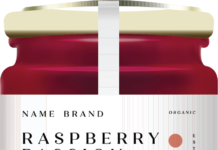
Marico Limited, one of India’s leading fast-moving consumer goods (FMCG) companies, is accelerating its sustainability efforts with a clear roadmap to achieve 100% recyclable packaging by 2030.
In an exclusive conversation with Packaging South Asia, Amit Bhasin, chief legal officer, Group General Counsel, and secretary of the CSR Committee at Marico Limited, shared key milestones and the strategic direction the company is taking to embed circularity in its packaging practices.
“We have made significant progress in packaging sustainability, with 95% of our packaging portfolio now recyclable,” Bhasin said. This is part of a structured three-pronged approach that focuses on incorporating recycled content into packaging, phasing out PVC shrink sleeves, and converting non-recyclable materials to recyclable alternatives. Marico has already made it a norm to use recyclable materials in all new product launches as it works toward the 2030 goal.
Marico says its packaging strategy aligns with its broader ESG 2030 roadmap, which integrates sustainable design, responsible sourcing, and waste reduction as central pillars. “Our long-term vision for packaging is to embed circularity by reducing reliance on virgin materials and scaling the use of recycled content across our portfolio,” Bhasin explained.
A critical component of this roadmap is the adoption of post-consumer recycled (r-PCR) content. Marico aims to incorporate a minimum of 30% r-PCR content in its non-food packaging by 2030, while maintaining flexibility to adapt to evolving regulatory requirements. “We are actively replacing virgin plastic with multiple post-consumer recycled resins such as R-HDPE, R-LDPE, and R-PET to reduce our environmental footprint,” Bhasin noted.
The company has already integrated recycled r-PET in select SKUs from its non-food portfolio. These initial successes are underpinned by successful trials and material innovation, laying the foundation for broader application across product categories. “These early integrations reflect our commitment to reducing waste and promoting packaging circularity,” he said.
Marico is also making significant progress in the responsible sourcing of paper-based packaging materials. “In FY 2024-25, 65% of our paper-based packaging materials were procured from Forest Stewardship Council (FSC) certified suppliers,” Bhasin said. This move aligns with the company’s sustainability vision and contributes to ethical and traceable sourcing practices throughout the supply chain. “By progressively increasing the share of certified raw materials, including FSC-certified paper, we are ensuring our packaging supports forest conservation and long-term environmental goals.”
Ensuring traceability and material verification across Marico’s supply chain is another key area of focus. “To ensure traceability and verification of recyclable packaging across our product lines and supplier networks, we have embedded robust systems within our value chain,” Bhasin said. This includes additional quality checks and material reconciliations to maintain accuracy and compliance, particularly when integrating recycled materials like r-PCR.
Marico says the commitment to sustainability reflects a larger shift in the FMCG sector toward environmentally responsible practices. With clear targets, early adoption of recycled content, and a strong emphasis on traceability and material certification, the company is setting a benchmark in sustainable packaging for the industry, Bhasin said.










